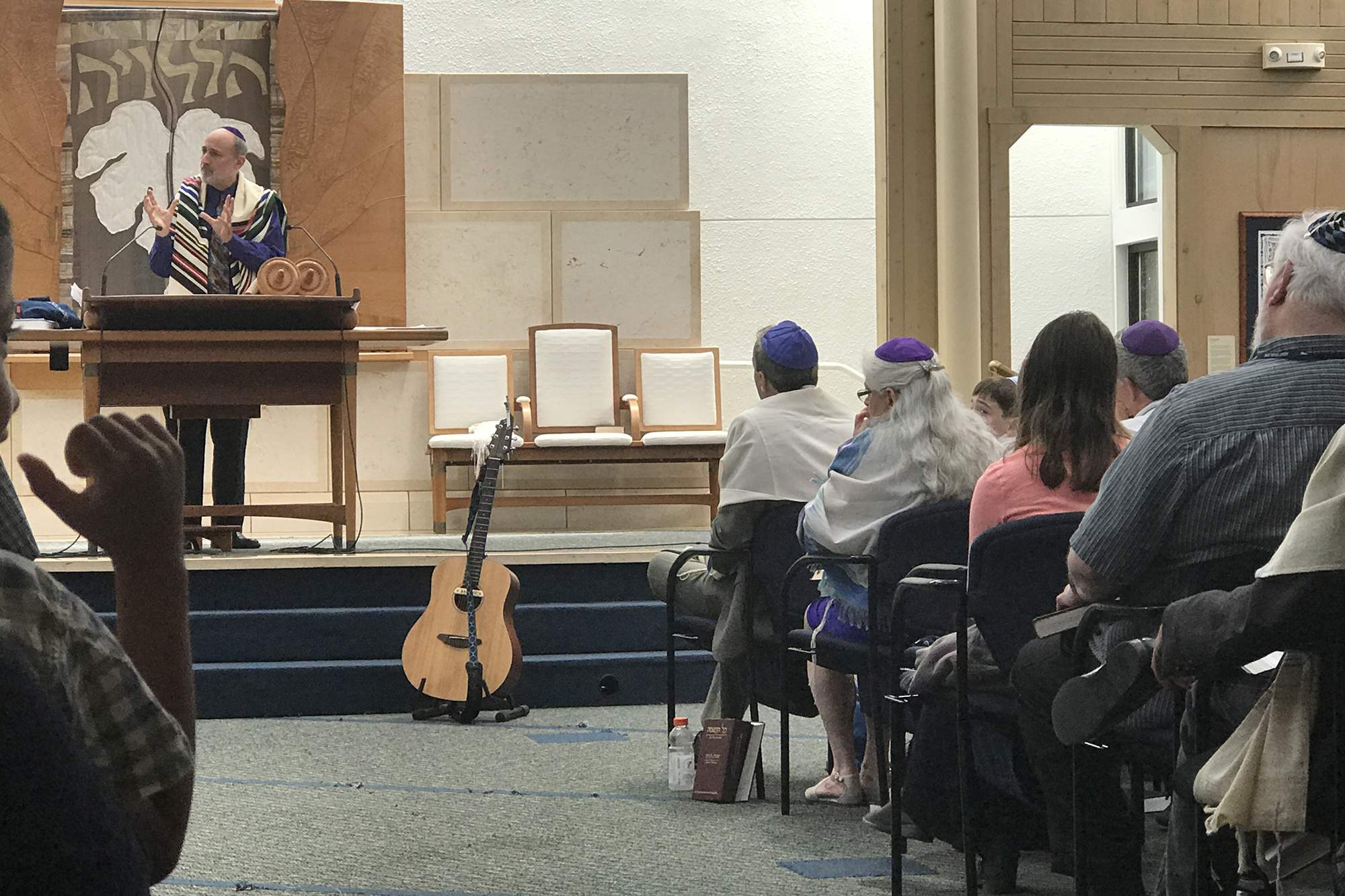

Happy Solstice! Happy Tevet!
Winter traditions across the Northern Hemisphere, from Druid to Christian to Jewish, are of course cued to these shortest days. All lift up themes of light and gifts, in the midst of darkness and scarcity.
In our case: while the Hebrew calendar wanders a few weeks across the solar/Gregorian year, Hannukah always falls close to solstice. And the sixth and seventh days of Hannukah are always Rosh Hodesh, the festival of the new moon – so our festival falls, intentionally, when the darkest nights are also the longest ones. It’s the only holiday to span two months!
This year, Hannukah starts within hours of solstice, at sunset on Dec. 22; Tevet begins with Havdalah, on Saturday night Dec. 28.
As the classic Hannukah song opens:
We have come to banish the darkness. In our hands are light, and fire.
Each individual is a small light; yet all of us [together] are a super-enduring one.”
בָּאנוּ חוֹשֶׁךְ לְגָרֵשׁ בְּיָדֵינוּ אוֹר וָאֵשׁ כָּל אֶחָד הוּא אוֹר קָטָן וְכֻלָנוּ אוֹר אֵיתָן
banu chosesh l’gareish; b’yadeinu ohr va’esh; kol echud hu or katan, v’khulanu ohr eitan.
(I recommend the You Tube “Banu Choshech – Banot and Noah Aronson” version, in Hebrew & English, with exquisite harmonies!)
So: How are we each agents of light, during these longest and darkest days?
(No, really: stop as you’re reading this, and reflect! It’s worth at least a minute of your time…)
Light. (You’re stopping there? Drop and give five more: ways in which we already are, or could-should-will be, agents of light?!)
And, gifts. The hyper-materialism of the holiday season is a new (and much-bemoaned) phenomenon, which we should resist. But simple gifts, expressions of appreciation that bring joy and fun into the home, are a venerable tradition. Some small gelt; a little something sweet; a modest present under the Hannukiyah or kinara (for Kwanzaa), or under the Christmas or solstice tree – lovely!
Hannukah’s twin holiday, liturgically speaking, is Purim. Since Esther made the canon, while Maccabees and Judith remained apocrypha, Purim has much more religious ritual surrounding it. We can learn about Hannukah gifts by inference from the obligatory Purim gifts, which are of two kinds: shlach manot, the sending out of portions (i.e. small things like hamantaschen) to friends and loved ones; and matanot la’ev’yonim, gifts to the poor, an intentional element of social welfare and redistributive justice, in our own time of joy.
So: (a) Have you finished your holiday shopping?
And (b) have you attended to the commonweal, with the same intentionality?
A reminder on behalf of Adat Shalom, and every other non-profit with which you may be affiliated: institutions like ours survive and thrive only with your robust support. It’s never too late to give, but year-end is a powerful time – for some, connected to the tax year (see below); but for all of us, as an extension of this season of gifts, and light.
Be the bearer of gifts. Be the embodiment of light.
Happy Hannukah; Merry Christmas; a Soulful Solstice; a Kind and Kickin’ Kwanzaa; and a Chodesh Tevet Tov, to all!
Rabbi Fred
End of Tax Year 2019 Note: The recent tax overhaul, by raising the standard deduction (and other changes like capping the state tax deduction), has reduced the percentage of people who itemize. You may be among the 10% or so who still itemize, or among the 70% or so who never did – but many of us are in-between. Know that Adat Shalom can work with you, to maximize the value of your donation.
By doubling twenty-four months’ worth of dues and donations into one tax year, you may find that it’s worth itemizing on alternate years. Just let us know if that dauntless December gift is for 2019 and 2020, both; or, if that gigantic January gift is for 2020 plus the previous or coming year.
We give for many reasons, with tax-deductions low on the list. Still, smart timing for itinerant itemizers can boost the after-tax effective value of the gift by an impressive 20 to 40 percent. Share that bonus by both rounding up your Adat Shalom donation, and giving “portions to friends and loved ones,” and “gifts to the poor”!

Copyright © 2024 Adat Shalom Reconstructionist Congregation. All rights reserved.